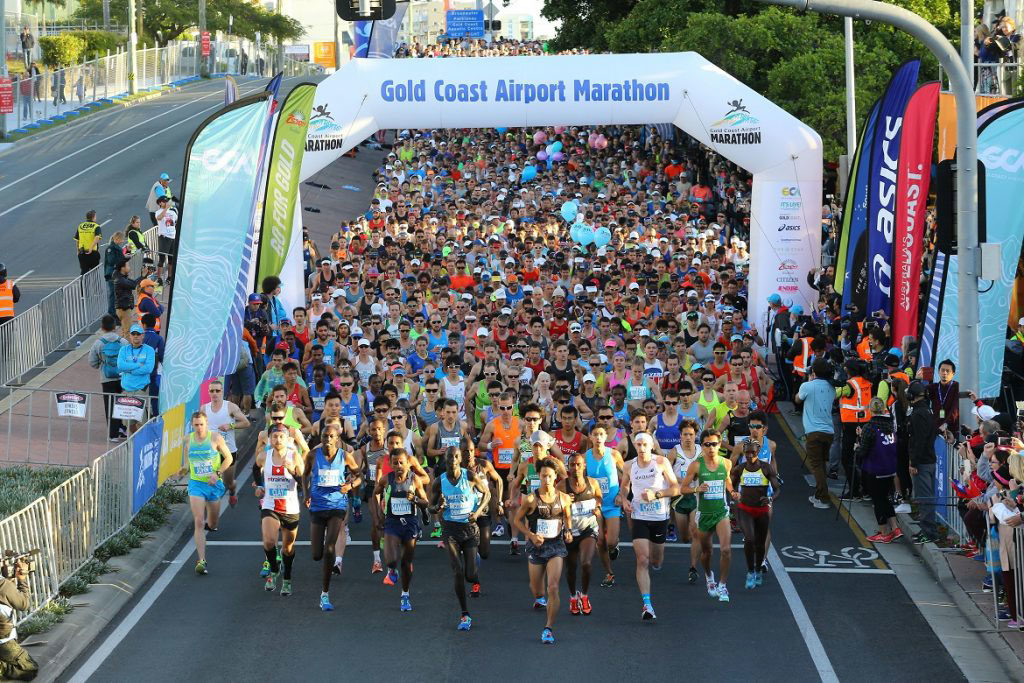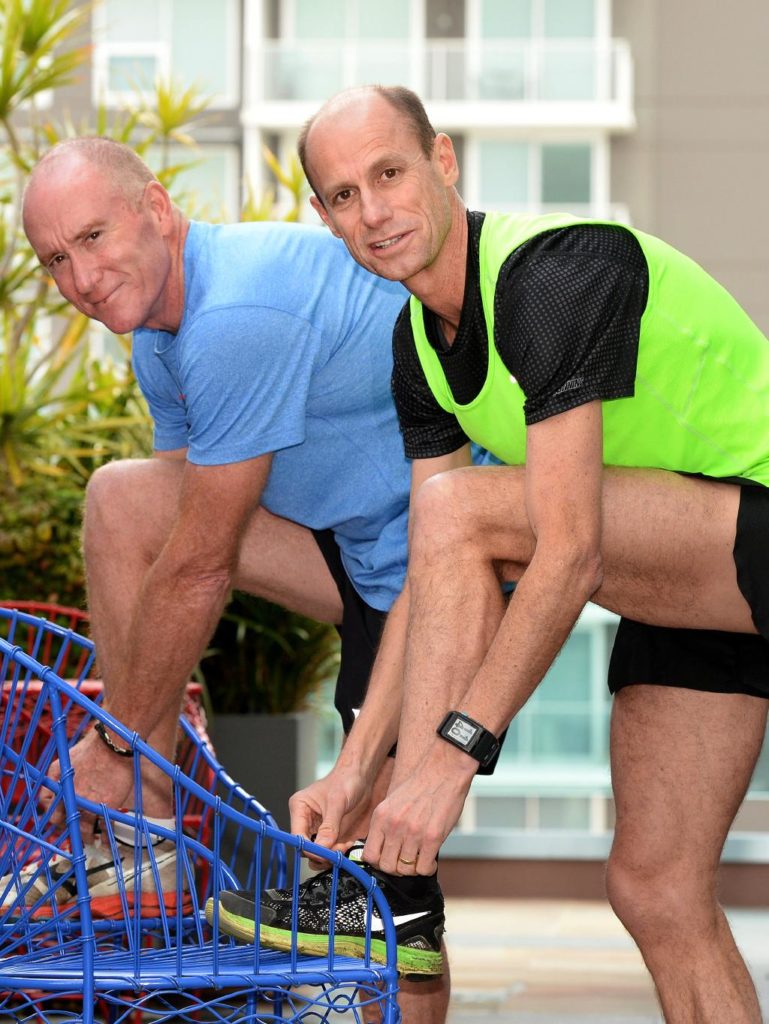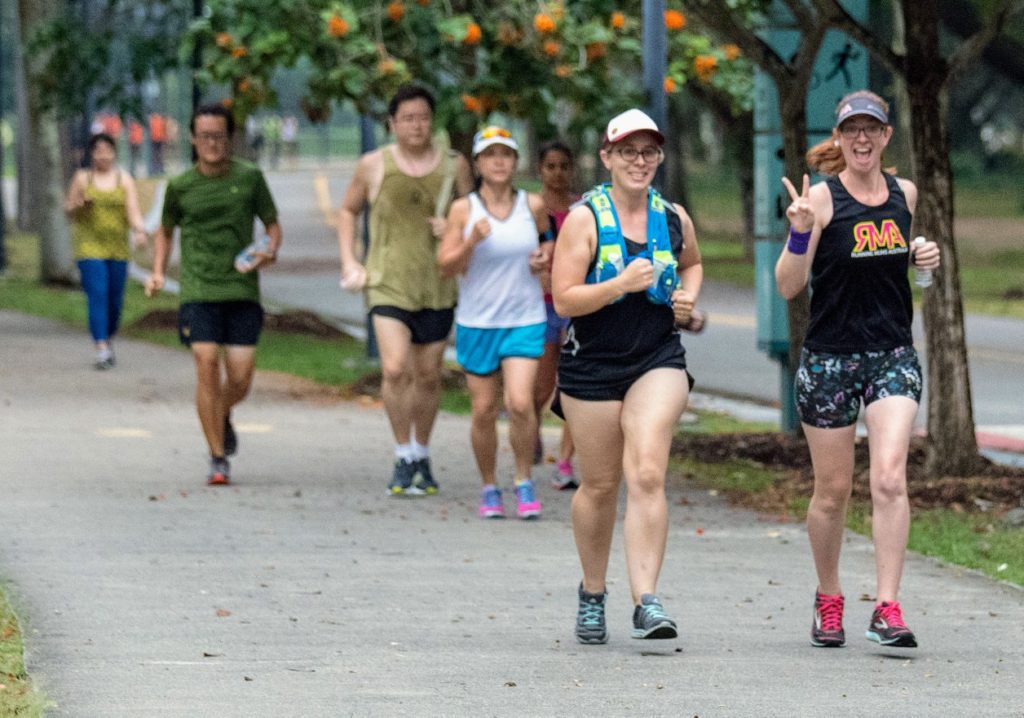For both first timers as well as seasoned runners, embarking on a marathon training programme can be a daunting task. This is because many do not really know how to start training for a marathon.

(Photo from Gold Coast Marathon)
This applies, regardless of whether you are preparing for the Gold Coast Marathon, or any other marathon race.
Have a training programme
According to Australia’s Steve Moneghetti though, regardless of whether you are signing up for a marathon to tick it off your bucket list or to gain a new personal best, you need to come up with a training programme that is most suited to your personal goals and the amount of time that you have available to you.
Steve is a four-time Olympian, as well as a Commonwealth Games gold medalist, Chef de Mission. He is also an ambassador for the Gold Coast Marathon.

Steve Moneghetti, right, with Pat Carroll. (Photo from The Advertiser)
A training programme also gradually builds your mileage and prevents you from running ‘junk miles’, or on the other hand, skipping your runs altogether due to laziness.
See a doctor for a full body check up
Regardless, Steve strongly advises runners to see a doctor for a full body check up prior to embarking on a marathon, so that you know if you are medically fit for this physically demanding task.
Keep a logbook
Once you are medically cleared, Steve then advises you to begin training. So that you can track your sessions, he recommends that you keep a logbook chronicling your training progress. This would be a great way to see your fitness levels improving.
Get a new pair of running shoes

According to him, getting a new pair of running shoes is also a great form of motivation to begin any marathon training cycle. This is because if you have new shoes, you will want to take them out for runs to use them – and thus, you’ll wind up logging a training session as a result.
Fit running into your lifestyle
And he also advises runners that you should fit your running training into your lifestyle as this means that you are more likely to stick to your training.
So for example if you are a naturally early riser, it may be good to wake up early in the mornings to run, but if you like sleeping in, then you should run in the evenings.
Do not feel the need to ‘make up’ missed sessions
However that said, Steve stresses that if you have missed out on a session or two because of issues such as work or family commitments, he advises that you should just move on with the training programme and that you should not feel the need to catch up on that session. But of course, do not miss out on too many sessions though.
Train on a mixture of terrain
Training on a mixture of terrain and not just road/gravel will also help in the long term according to Steve because running on road is unforgiving on the legs. So whenever you are able to, try to run on trails, grass, dirt or a running track.

Find a running buddy or group
And lastly, he also recommends that you could find a running group or buddy because having another person to train with, will help you to stay committed in the long term.
This is because for example, if you are too lazy to do your running session, knowing that there is someone else waiting for you there, will help to push you to go for your run, instead of choosing the lazy option and going home to sleep.
These running tips have been brought to you by the Gold Coast Airport Marathon.

Leave a Comment